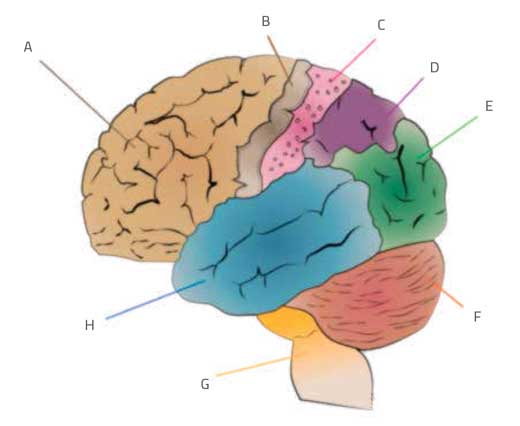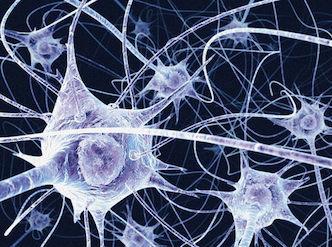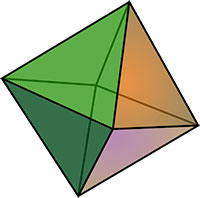Thinking about brain awareness week Inspire article
Get your cogs turning and your students’ brains ticking with these articles and activities
Hearing the sound of your alarm clock, savouring the smell of freshly brewed coffee, munching on your breakfast cereal, reading the newspaper and perhaps recalling last night’s strange dream; only half way into your morning routine and you have already sparked signals between millions of nerve cells and activated a considerable portion of your brain.
Whilst tasks like these may seem fairly ordinary to us, the precise coordination and timing of the brain that is required is actually quite remarkable. Brain research has enabled neuroscientists to understand the structure and function of the brain, and as this week is brain awareness week let’s take a look at some of the things we know.

Image courtesy of Jkwchui; image source: Wikimedia Commons
One important question being investigated is how the first brains arose, and molecular biologist Detlev Arendt is on the case. In 2006, Detlev described following in the footsteps of 19th-century scientist Ernst Haeckel to tackle the topic of brain evolution. By studying the development of the worm Platynereis dumerilii, Detlev hopes to discover how the first brains arose. He believes that if you can find related cells among different species, which come from a basic recipe for creating the major cell types and organs, you are likely to have found the original cocktail for building brains.

Images; image source: Flickr
We rely on scientists like Detlev to improve our understanding of the brain and our health. We now appreciate that physical exercise, a healthy diet and staying socially and mentally active can slow cognitive decline. Puzzles, games and problem solving questions such as those found in this “Mindboggling Workbook” from The Dana Foundation can help students keep their minds active and encourage them to consider ways to maintain a healthy brain.
Even when we are not consciously working to improve our brain performance, our brain is carrying out complex tasks without us realising. For example, you might have been under the impression that we see in three dimensions. In reality, we only see in two, but our brain uses 2D images to create an illusion of 3D. You can use these activities to link this theory to real-life applications in order to understand how our brains make 2D images more real.

source: Wikimedia Commons
To see another example of something we are unaware our brains can do, watch the 3-minute clip below with musician Bobby McFerrin. Filmed at the World Science Festival in New York in 2009, Bobby first establishes some starting notes, and then jumps around the stage to elicit a response from the crowd that they didn’t know they were capable of, resulting in a surprised and very amused audience! He is easily able to guide them through a major pentatonic pattern, because that’s what their brains expect the pattern to be. Like the pentatonic scale, music is often predictable and is structured in a way that our brains favour. Due to the impact it has on our brains and bodies, music is becoming increasingly popular as a form of therapy. Stimulating our memory, enhancing learning and hijacking our emotions are just some of the brain-based reasons why music works in therapy.
Sitting in the audience for Bobby’s talk, when you weren’t joining in the singing, you might be aware of certain distractions; someone’s phone rings, your neighbour coughs, or a person in the next row sneezes. Neuroscientist Jean-Philippe Lachaux is interested in these brief flickers of distraction termed “micro mind-wandering” and the impact they have on attention and memory. By understanding which neural networks in the brain react when we are distracted, people could be trained to resist distraction and children’s attention in schools could be improved!
If you have succeeded in reaching the end of this article without experiencing some mind-wandering, or even micro mind-wandering, your ability to recall the information tomorrow will be much greater. So, after that whistle stop tour of the brain perhaps you deserve a little rest – after all, sleep plays an important role in learning, just one of many things your brain does while you sleep.
